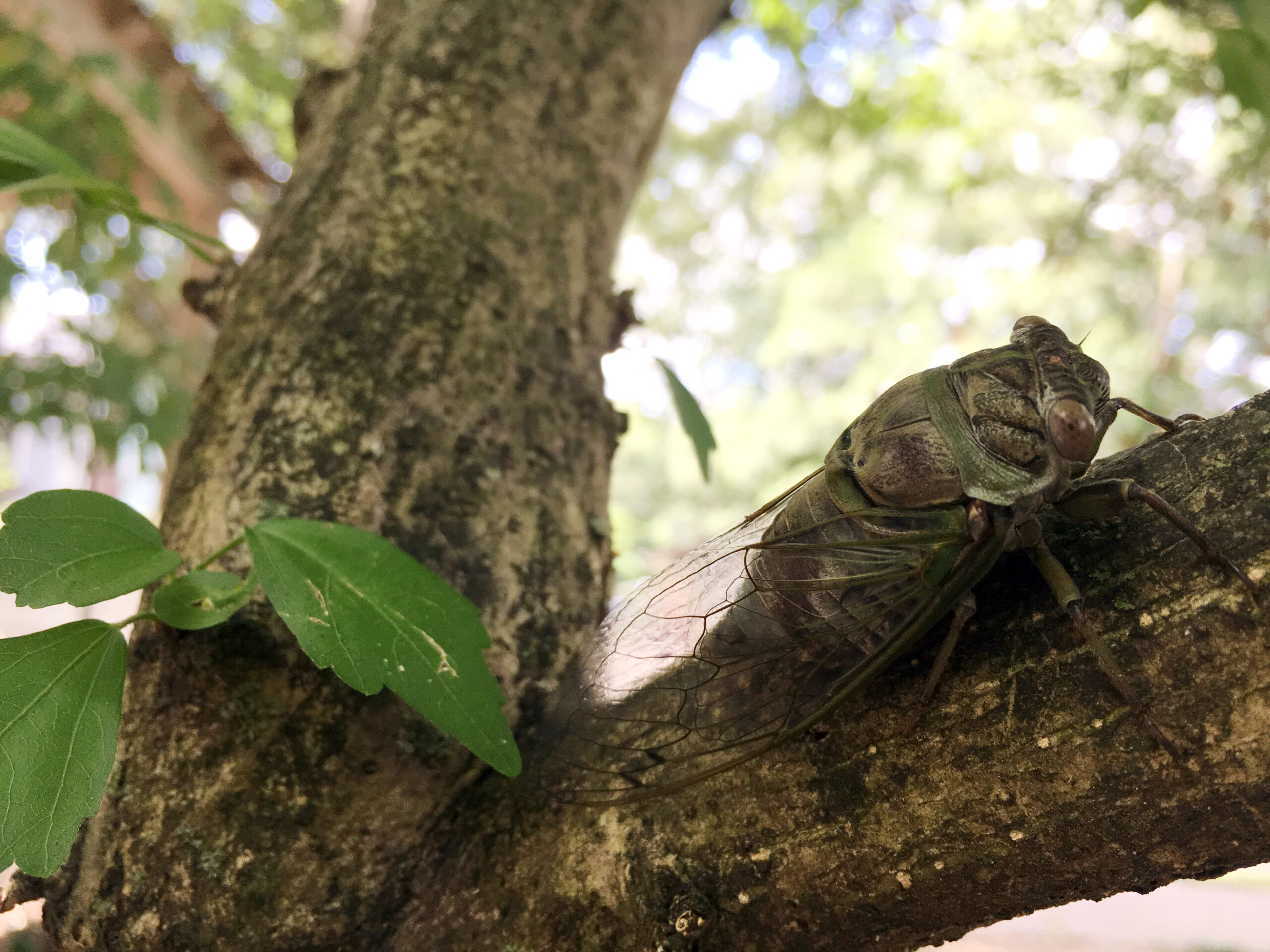How Will Georgia’s Animals Respond To The Solar Eclipse?

Molly Samuel
If you’ve read much about next week’s eclipse, you may have come across mentions of animals behaving strangely when the moon blocks out the sun. There are a lot of stories out there about the phenomenon, but not a whole lot of science.
“There are some published studies, but most reports of animal behavior change during total solar eclipses or even partial solar eclipses is really anecdotal,” says Rebecca Johnson, who leads the citizen science program at the California Academy of Sciences. “It’s hard to have a control because eclipses don’t happen all the time. They happen very rarely and all over the globe.”
One scientist who has published a paper on animals responding to eclipses is Allen Sanborn, a biology professor at Barry University in Florida.
He studies cicadas, and he happened to be doing field work during an eclipse in Arizona in 1991.
“We were lucky,” he says with a laugh.
On that lucky day, he says, the sun was up, the cicadas had just warmed up enough to start singing, and then, the eclipse happened. The moon blocked the sun, the temperature dropped, and the cicadas got quiet.
“Their body temperatures decreased, and they couldn’t remain active,” Sanborn says.
Time passed, the moon moved past the sun, and the cicadas “warmed up and they continued on with their day.”
This was a different species of cicadas than what we have here in Georgia, but Sanborn says the same thing will probably happen during the eclipse here too. The cicadas that sing during the day will likely respond to the cooler temperatures and get quiet. On the flip side, there are those cicadas that sing in the evening, and Sanborn says those guys might start up in response to the eclipse.
Beyond The Bugs
If insects respond to the eclipse, the birds that eat them might too, says Nikki Belmonte, executive director of the Atlanta Audubon Society.
Birds will probably act like it’s dusk, or just before one of those really big summer storms, she says. As the temperature drops and the wind dies, birds will calm down, they’ll stop singing, and may come to roost.
“You could look for what the chimney swifts are up to, because we have lots of those in Atlanta,” she says. Those fast little birds usually come out in the evenings to swoop after bugs.
“My hope is to go to some wetlands, look for some cool birds, like spoonbills, which would be rare, or ibises or all the herons. See what they’re up to,” Belmonte says.
Frogs and toads might respond too.
Mark Mandica, executive director of the Atlanta-based Amphibian Foundation, dug up a scientific paper on eclipse responses from 1932. There was an eclipse in New England that year.
“Spring peepers and gray treefrogs began calling,” Mandica says. According to the study, toads perked up and started foraging as if it was nighttime.
“I wonder what they were thinking,” Mandica says.
The species mentioned in that old study live here in Atlanta too, so he plans to keep an ear out for them. And he’ll collect data on what other people notice during the eclipse through the Metro Atlanta Amphibian Monitoring Project website.
More Than Anecdotes
A bigger initiative organized by the California Academy of Sciences will gather stories about animals’ responses to the eclipse using a smartphone app called iNaturalist.
“We’re trying to kind of aggregate all of those anecdotes in one place,” Johnson says.
Anyone can use the app to share their observations of animals – or even plants. For the eclipse, the California Academy of Sciences will be looking especially for how behavior changes before, during and after the event.
The organization will share the information afterward, highlighting trends or things that really stand out. So anyone who participates in the project can see what they contributed to. And scientists will be able to take the information and use it for future research.
“We don’t necessarily know what people are going to see,” Johnson says. “Really we’re asking people to be curious and pay attention and think about things that they might not have thought about before.”
9(MDAxODM0MDY4MDEyMTY4NDA3MzI3YjkzMw004))







